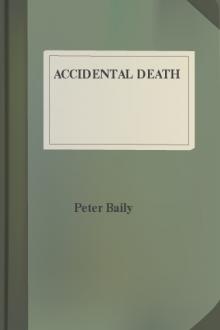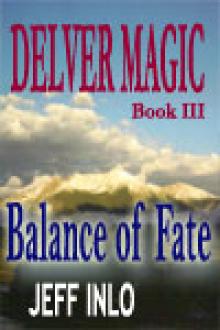Eco: Foucalt's Pendulum by eco foucault (important books to read .txt) 📗

- Author: eco foucault
Book online «Eco: Foucalt's Pendulum by eco foucault (important books to read .txt) 📗». Author eco foucault
Finally, what Lia toldme in the mountains is true. Her interpretation is completelyconvincing: the Provins message is a laundry list. There were neverany Templars' meetings at the Grange-aux-Dimes. There was no Planand there was no message.
The laundry list, forus, had been a crossword puzzle with the squares empty and nodefinitions. The squares had to be filled in such a way thateverything would fit. But perhaps that metaphor isn't precise. In acrossword puzzle the words, intersecting, have to have letters incommon. In our game we crossed not words but concepts, events, sothe rules were different. Basically there were threerules.
Rule One: Concepts areconnected by analogy. There is no way to decide at once whether ananalogy is good or bad, because to some degree everything isconnected to everything else. For example, potato crosses withapple, because both are vegetable and round in shape. From apple tosnake, by Biblical association. From snake to doughnut, by formallikeness. From doughnut to life preserver, and from life preserverto bathing suit, then bathing to sea, sea to ship, ship to shit,shit to toilet paper, toilet to cologne, cologne to alcohol,alcohol to drugs, drugs to syringe, syringe to hole, hole toground, ground to potato.
Rule Two says that iftout se tient in the end, the connecting works. From potato topotato, tout se tient. So it's right.
Rule Three: Theconnections must not be original. They must have been made before,and the more often the better, by others. Only then do thecrossings seem true, because they are obvious.
This, after all, wasSignor Garamond's idea. The books of the Diabolicals must notinnovate; they must repeat what has already been said. Otherwisewhat becomes of the authority of Tradition?
And this is what we did.We didn't invent anything; we only arranged the pieces. ColonelArdenti hadn't invented anything either, but his arrangement of thepieces was clumsy. Furthermore, he was much less educated than we,so he had fewer pieces.
They had all the pieces,but They didn't know the design of the crossword. We¡Xonceagain¡Xwere smarter.
I remembered somethingLia said to me in the mountains, when she was scolding me forhaving played the nasty game that was our Plan: "People are starvedfor plans. If you offer them one, they fall on it like a pack ofwolves. You invent, and they'll believe. It's wrong to add to theinventings that already exist."
This is what alwayshappens. A young Herostratus broods because he doesn't know how tobecome famous. Then he sees a movie in which a frail young manshoots a country music star and becomes the center of attention.Herostratus has found the formula; he goes put and shoots JohnLennon.
It's the same with theSFAs. How can I become a published poet whose name appears in anencyclopedia? Garamond explains: It's simple, you pay. The SFAnever thought of that before, but since the Manutius plan exists,he identifies with it, is convinced he's been waiting for Manutiusall his life; he just didn't know it was there.
We invented anonexistent Plan, and They not only believed it was real butconvinced themselves that They had been part of it for ages, orrather, They identified the fragments of their muddled mythology asmoments of our Plan, moments joined in a logical, irrefutable webof analogy, semblance, suspicion.
But if you invent a planand others carry it out, it's as if the Plan exists. At that pointit does exist.
Hereafter, hordes ofDiabolicals will swarm through the world in search of themap.
We offered a map topeople who were trying to overcome a deep, private frustration.What frustration? Belbo's first file suggested it to me: There canbe no failure if there really is a Plan. Defeated you may be, butnever through any fault of your own. To bow to a cosmic will is noshame. You are not a coward; you are a martyr.
You don't complain aboutbeing mortal, prey to a thousand microorganisms you can't control;you aren't responsible for the fact that your feet are not veryprehensile, that you have no tail, that your hair and teeth don'tgrow back when you lose them, that your arteries harden with time.It's because of the Envious Angels.
The same applies toeveryday life. Take stock-market crashes. They happen because eachindividual makes a wrong move, and all the wrong moves put togethercreate panic. Then whoever lacks steady nerve asks himself: Who'sbehind this plot, who's benefiting? He has to find an enemy, aplotter, or it will be, God forbid, his fault.
If you feel guilty, youinvent a plot, many plots. And to counter them, you have toorganize your own plot. But the more you invent enemy plots, toexonerate your lack of understanding, the more you fall in lovewith them, and you pattern your own on their model. Which is whathappened when Jesuits and Baconians, Paulicians and neo-Templarseach complained of the other's plan. Diotallevi's remark was: "Ofcourse, you attribute to the others what you're doing yourself, andsince what you're doing yourself is hateful, the others becomehateful. But since the others, as a rule, would like to do the samehateful thing that you're doing, they collaborate with you, hintingthat¡Xyes¡X what you attribute to them is actually what they havealways desired. God blinds those He wishes to destroy; you justhave to lend Him a helping hand."
A plot, if there is tobe one, must be a secret. A secret that, if we only knew it, woulddispel our frustration, lead us to salvation; or else the knowingof it in itself would be salvation. Does such a luminous secretexist?
Yes, provided it isnever known. Known, it will only disappoint us. Hadn't Aglie spokenof the yearning of mystery that stirred the age of the Antonines?Yet someone had just arrived and declared himself the Son of God,the Son of God made flesh, to redeem the sins of the world. Wasthat a run-of-the-mill mystery? And he promised salvation to all:you only had to love your neighbor. Was that a trivial secret? Andhe bequeathed the idea





Comments (0)